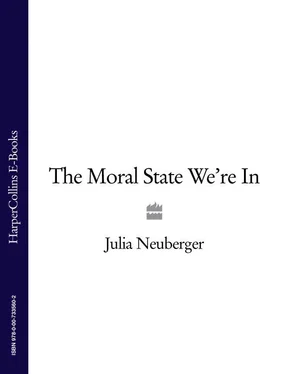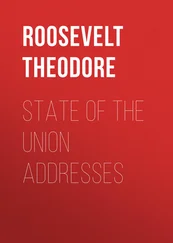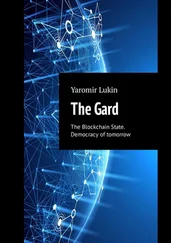From the resentment caused by the government’s reaction to the Royal Commission on Long Term Care, after years of surprising political inactivity amongst older people, there has grown the beginnings of a grey-power movement. It does not yet have real political teeth, but they will come. Though the organisation of the grey vote is not in the league of similar movements in the USA, the voting figures, which show that older people vote more than younger people, make governments nervous. If older people voted more on self interest, then governments would be in trouble.
And there are signs that older people, who have not hitherto voted on sectional interests, are beginning to change. They see themselves as having to bear the risk of the costs of long-term care, and they cannot see how they can trust a government that has, in their view, reneged on a promise to remove the inequities of the present system. Worse than that, they are beginning to ask whether they can trust any government to treat them fairly. The 75p increase in the old age pension in 2000 met with a furious response. As Gary Younge pointed out, in a hard hitting article in The Guardian shortly after that famous increase, the government’s determination to keep the pension increase index linked ‘was more than a mathematical calculation. There was political arithmetic there too.’ *The assumption, as Younge makes clear, was that old people would complain but that they would not fight back.
But the government got it wrong. Older people did fight back. The National Pensioners’ Convention is growing. On the question of council tax, some older people have simply refused to pay. In March 2002, one old lady, 102-year-old Rose Cottle, furious at the prospective closure of her care home where she had lived happily for many years, took a petition to Downing Street and caused some embarrassment-but not enough. By the next week things had moved on, and she was forgotten. Some have gone on hunger strike, and others have been moved-against their will-and have died shortly afterwards. But grey power is coming. As The Economist made clear recently, the overall fall in voter turnout is largely a change in the voting patterns of the young. † The old vote as they always have done. So pensioners, who represent 24 per cent of the voting-age population, accounted for 35 per cent of votes at the last election. At the next one, the figure is more likely to be 40 per cent. So grey power will soon begin to bite. *
Long-term care has been one source of anger amongst older people. Another issue that has caused resentment is abuse.
A survey conducted by Age Concern as far back as 1991 estimated that between 5 and 9 per cent of people aged over 65 had been abused-more than half a million people. The incidence of abuse is clearly likely to increase as the population ages: the greater the level of dependency, the greater the risk of abuse. In 2004 Jennie Potter, a district nurse who is a national officer of the Community and District Nursing Association, compiled a report on abuse of older people † that suggested the problem was widespread. The CDNA surveyed just over seven hundred nurses, and found that a staggering 88 per cent of them had encountered elder abuse at work, 12 per cent of them daily, weekly, or monthly. The most common form of abuse was verbal (67 per cent), followed by emotional (51 per cent), physical (49 per cent), financial (34 per cent), and sexual (8 per cent). The most likely perpetrators were partners (45 per cent), followed by sons (32 per cent), daughters or other family members (29 per cent), paid carers (26 per cent), nurses (5 per cent), or other persons (4 per cent). ‡
This suggests a huge incidence of abuse, one that until recently we did not take seriously. Though dramatic cases often make the local press, very few are reported in the national papers. The appalling case of 78-year-old Margaret Panting, for instance, who died after receiving huge physical abuse that included cigarette burns and cuts from razor blades is little known. Whilst there is a major inquiry over the death of Victoria Climbié, and over every other child who dies in appalling circumstances, abuse of older people, which may also lead to death, simply does not carry the same weight, or tug at the heart strings as much. Yet there is equally a serious problem here, and some older people, as well as their carers and nurses, are now speaking up about it in a brave and forthright way. For it is not a simple issue, which, to some extent, is why older people have been loathe to raise it. Though there is some violence against older people on the wards of hospitals, most abuse is not the stuff of headlines. Much of it is score settling-often by a wife who feels she has had a rough time at the hands of her husband-when one partner becomes physically dependent on another. This may be no more than rough handling, verbal abuse, and a general lack of care and kindness. But it can still make the last years, months, or weeks of a person’s life intolerable. Then there are some paid carers who take advantage of their position to steal from their employers. I well remember my own mother’s fear of us confronting one of her early carers (the majority were completely wonderful, with this one exception) who was stealing from her and forging stolen cheques. That fear, that loss of the normal ability to confront an issue, makes the abuse of older people truly dreadful.
Even more complicated is the amount of abuse received from partners and children, normally due to the considerable levels of stress experienced from trying to care for someone as well as carrying on with the normal things of life. Action on Elder Abuse, a charity set up in 1993, has been campaigning for urgent official action after demonstrating in a variety of ways, including an undercover TV programme in late 2003, *the seriousness of the situation. An analysis of the calls the charity received over a two-year period from 1997 to 1999 demonstrated that two-thirds of the calls came from older people themselves or their relatives. Most of the calls concerned abuse in people’s own homes, though a quarter were about abuse in nursing homes, residential care homes, and hospitals. *There were cases of near starvation in care homes, of helpless older people left to die because their buzzers had been placed out of reach, nurses sleeping through night shifts and dressing patients in incontinence pads so they would not be disturbed, and the attempted suicide of several people in nursing homes that were due to close. Some of the statistics are particularly concerning. For instance, abuse appears to increase with age, and therefore with vulnerability. Given that vulnerability makes it harder to complain, this is particularly terrifying. Three times as many calls to Action on Elder Abuse concern abuse of women: women live longer and are therefore likely to be amongst the very old. †
There is the additional likelihood that cases of abuse will rise as the population grows older and the number of people with Alzheimer’s disease increases. Though we may not be ill for any longer than previous generations, the nature of our illnesses is changing. The increase of Alzheimer’s disease has huge implications for the kind of care we will need, and the amount of patience that will be required to deal with often very difficult, irrational, older people. Ironically, it will be even harder to detect abuse, for often the complainers will not be believed, even if they are telling the truth, simply because of the nature of the disease. Caring for those with dementia requires such a degree of patience and skill, and can lead to such frustration, that the chances of abuse increase and the levels of care needed will be much greater-for instance, more and more lengthy home visits will be required. Present provision is patchy at best, and often simply unsatisfactory, as Tony Robinson reported in his story in the Daily Mail about the care his parents received: *‘The NHS still fails to recognize the special needs of people with dementia, and won’t pay for their long term care…If we want a dignified old age for ourselves and our parents, it’s up to us to do something about it.’ Meanwhile, research suggests that some 22,000 old people are being given drugs to sedate them, to make it easier for care staff to manage them, according to Paul Burstow, the Liberal Democrat spokesman. † If anything, this figure seems on the low side.
Читать дальше






![Nicholas Timmins - The Five Giants [New Edition] - A Biography of the Welfare State](/books/701739/nicholas-timmins-the-five-giants-new-edition-a-thumb.webp)





